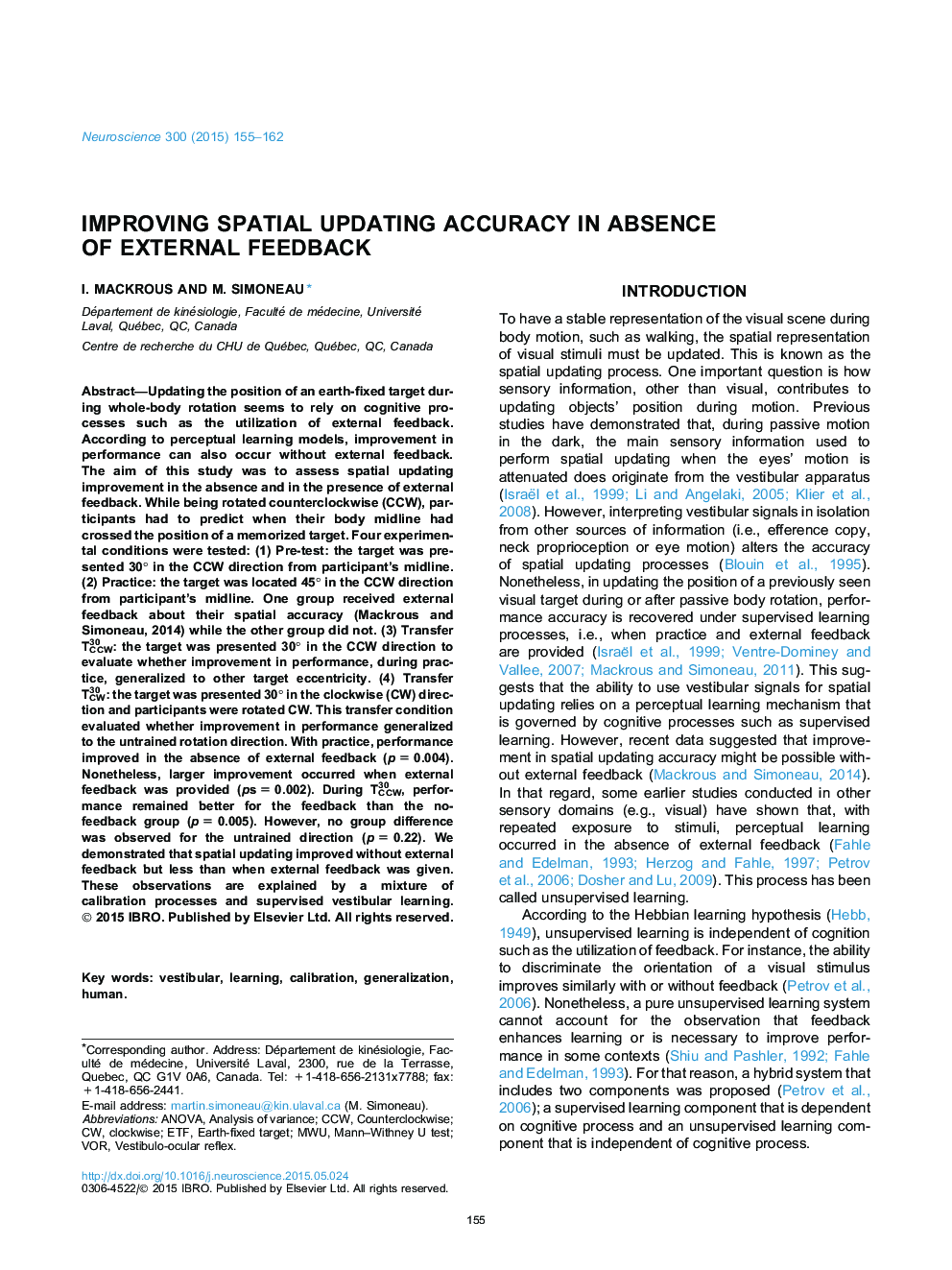| کد مقاله | کد نشریه | سال انتشار | مقاله انگلیسی | نسخه تمام متن |
|---|---|---|---|---|
| 6271962 | 1614776 | 2015 | 8 صفحه PDF | دانلود رایگان |
- Improvement in spatial updating accuracy occurred without external feedback.
- Improvement without feedback transfers for untrained target and rotation direction.
- Vestibular calibration could explain spatial improvement.
- External feedback enhanced spatial updating accuracy.
- Mechanisms relying on feedback do not transfer for untrained rotation direction.
Updating the position of an earth-fixed target during whole-body rotation seems to rely on cognitive processes such as the utilization of external feedback. According to perceptual learning models, improvement in performance can also occur without external feedback. The aim of this study was to assess spatial updating improvement in the absence and in the presence of external feedback. While being rotated counterclockwise (CCW), participants had to predict when their body midline had crossed the position of a memorized target. Four experimental conditions were tested: (1) Pre-test: the target was presented 30° in the CCW direction from participant's midline. (2) Practice: the target was located 45° in the CCW direction from participant's midline. One group received external feedback about their spatial accuracy (Mackrous and Simoneau, 2014) while the other group did not. (3) Transfer T30CCW: the target was presented 30° in the CCW direction to evaluate whether improvement in performance, during practice, generalized to other target eccentricity. (4) Transfer T30CW: the target was presented 30° in the clockwise (CW) direction and participants were rotated CW. This transfer condition evaluated whether improvement in performance generalized to the untrained rotation direction. With practice, performance improved in the absence of external feedback (p = 0.004). Nonetheless, larger improvement occurred when external feedback was provided (ps = 0.002). During T30CCW, performance remained better for the feedback than the no-feedback group (p = 0.005). However, no group difference was observed for the untrained direction (p = 0.22). We demonstrated that spatial updating improved without external feedback but less than when external feedback was given. These observations are explained by a mixture of calibration processes and supervised vestibular learning.
Journal: Neuroscience - Volume 300, 6 August 2015, Pages 155-162
